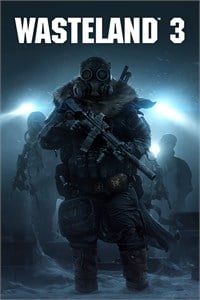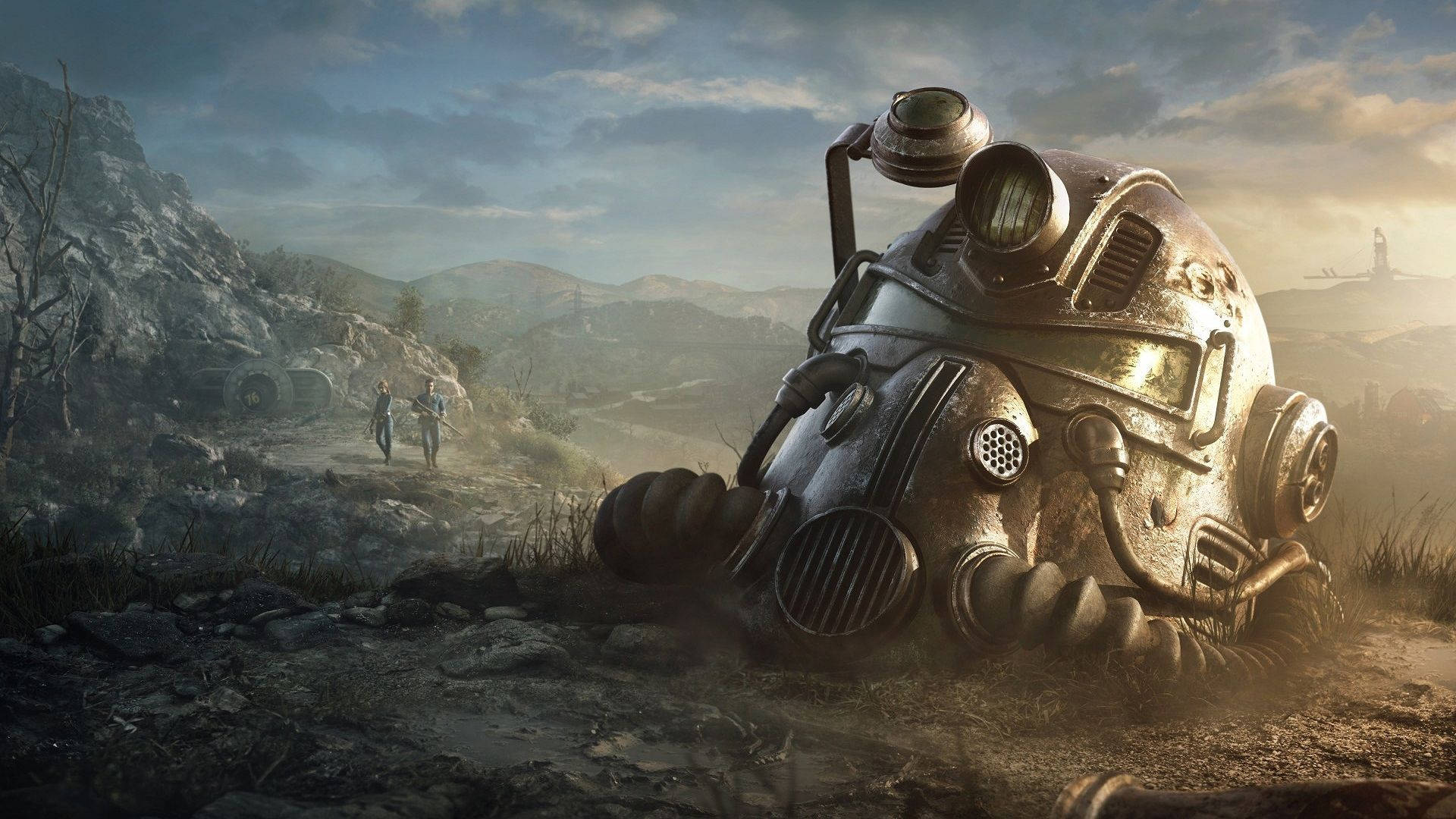Wasteland 3 character class build guide: How to choose the right stats and weapons
Pick the best builds for tanks, snipers, and leaders.
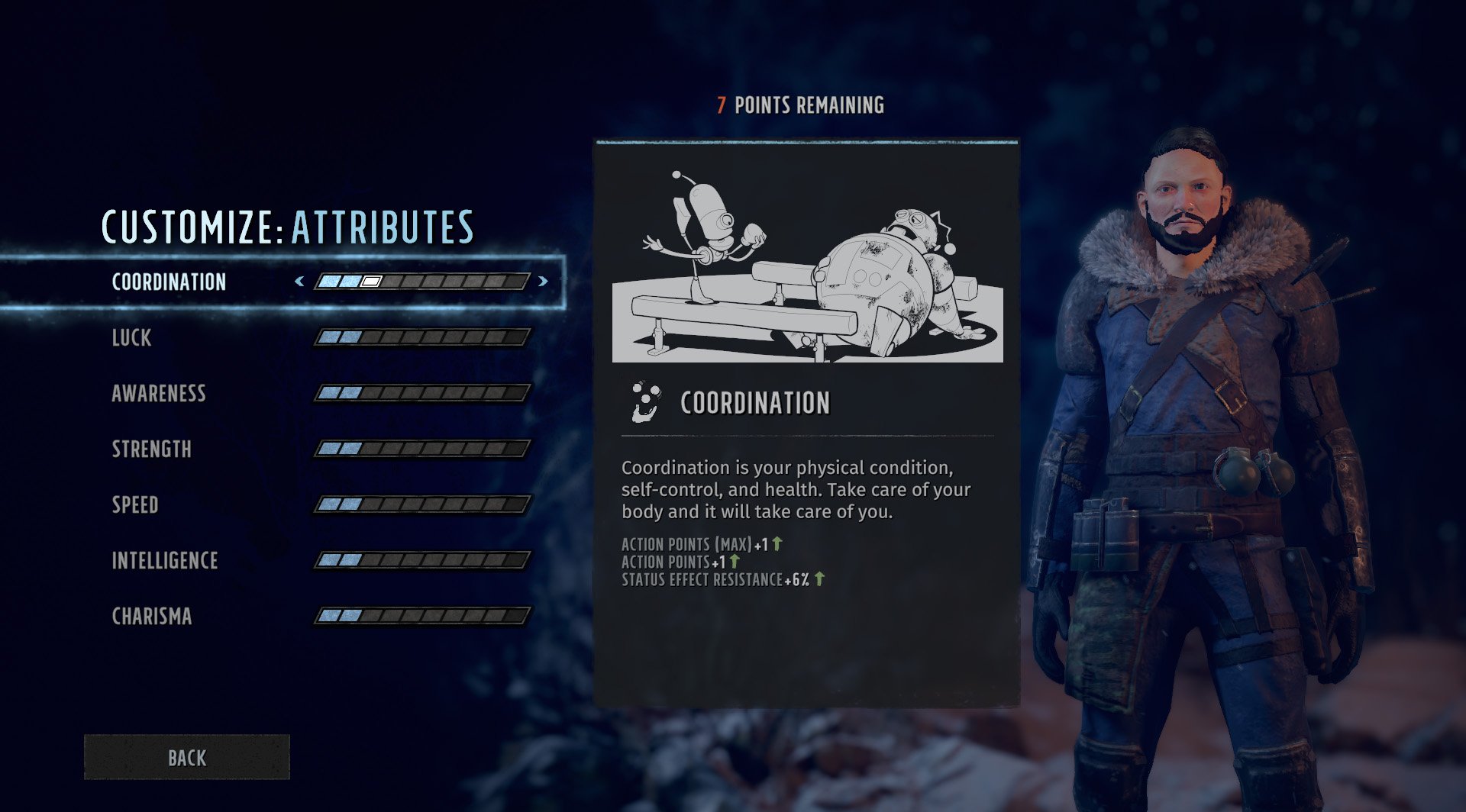
All the latest news, reviews, and guides for Windows and Xbox diehards.
You are now subscribed
Your newsletter sign-up was successful
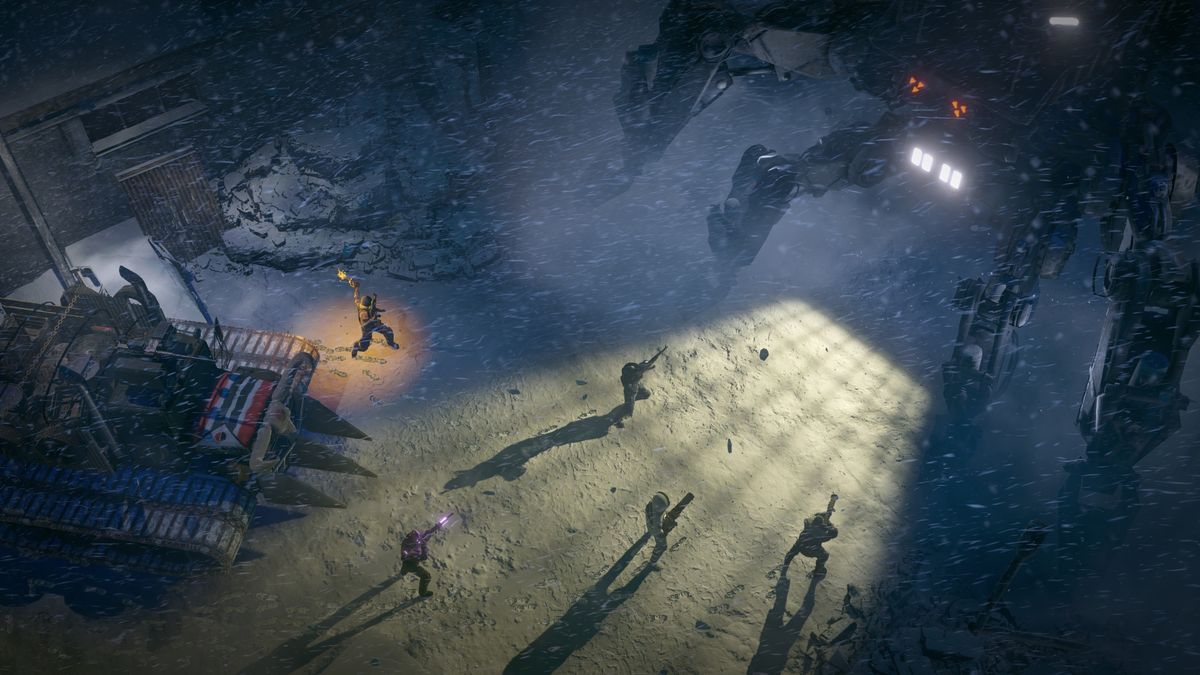
The tactical RPG Wasteland 3 eschews a traditional class system, giving you the freedom to build whatever characters you want and choose how to improve them throughout your adventures in the frozen wilderness of post-apocalyptic Colorado. You'll start with two Desert Rangers who have fled Arizona following the events of Wasteland 2 and need to establish a new team, eventually building a six-person party.
If you want to just jump right into the action, you'll get a choice of five pre-made pairs, each with a solid build and fun backstory. But you can also design your own characters with a huge number of customization options. One of the core aspects to combat is building synergies between your characters so you'll want to choose carefully.
After you've built your character, be sure to get started with our Wasteland 3 Ultimate Beginner's Guide for tips and tricks on how to get started in the apocalypse.
Weapon of choice
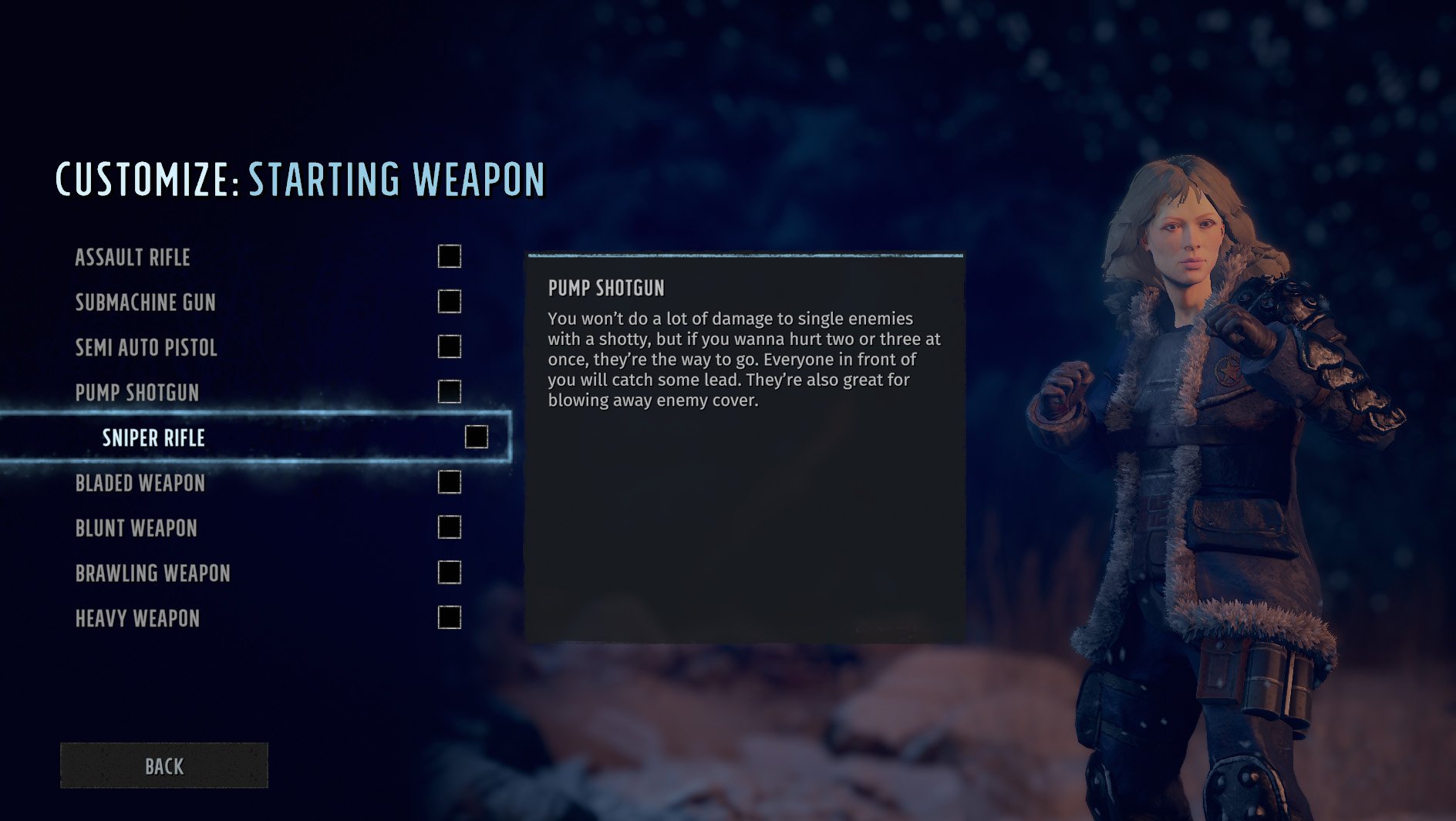
One of the first decisions you'll make is your starting weapon. Each choice has its own benefits and drawbacks, balanced based around the amount of action points required to use it in a given turn within the game's tactical combat system.
- Assault rifles are solid overall weapons with good penetration, range, and hit chance. They're particularly good at landing killing blows and don't cost too many points to fire so you'll be able to both shoot and move more often.
- Submachine guns have high damage with short range but don't cut through armor very well. However, they'll do serious damage to unarmored foes from humans to mutant bears. The weapon will combo well with any power that strips armor.
- Pistols have high accuracy and cost few action points fire. They're particularly good in the hands of medics since they'll be able to shoot while still using their expensive abilities.
- Shotguns deal mediocre damage to a single target but can make up for it by hitting every enemy in a cone. They can also destroy cover during combat, making it harder for your opponents to defend themselves.
- Sniper rifles are expensive to fire, making it hard to shoot more than once per turn. Luckily their extreme range means you're unlikely to need to move. They're good for finishing off targets across the battlefield and have really powerful critical hits.
- Bladed weapons provide one of the best damage dealing options. Their attacks are cheap but have low armor penetration so combo them with abilities that break or ignore armor.
- Blunt weapons provide powerful critical hits along with reliable heavy damage. Using them costs more points than bladed weapons, but they can also stun your enemies.
- Brawling starts as a terrible option, but it's viable later in the game when you can unlock powerful perks and special weapons like energy gauntlets.
- Heavy weapons particularly benefit from any hit chance bonuses you get from your skills or attributes since every bit will significantly boost your damage. Later in the game, heavy weapons users will also have access to flamethrowers which you can appropriately use to set enemies on fire. Burning enemies have a lower hit chance and the damage they take is based on a percentage of their health, making the weapons particularly powerful when attacking big enemies.
Assigning attributes
Players start with 14 attribute points to spend on each character. You can max out your stats at the expense of everything, or choose a balanced starting character that will let you decide what to level up as you play. Here's what each of the attributes does:
- Coordination primarily gives you action points but also provides resistance to status effects like being lit on fire or other debuffs. This will become more relevant later in the game when enemies have more ways to mess with you. The attribute is particularly important for small arms users and brawlers who have the ability to attack more than once. Bigger weapons likely won't fire more than once in a turn even with maxed coordination.
- Luck provides bonus weapon penetration and lucky events. Those events can boost your chance for crits, free actions, evading bullets, crit resistance, or make your crits do more damage. You'll also have the chance to heal twice as much, and to earn additional cash or scrap. Luck is probably best on tanks and pistol users because the penetration helps pistols, brawling weapons, and submachine guns. However, the attribute is unreliable so it's not as valuable early in the game when you'll just want to focus on survivability.
- Awareness improves your hit chance with any weapon and ups your perception, which you'll need to spot landmines. It also increases the damage done with ranged weapons.
- Strength gives you a bonus constitution that levels as you go, providing more health to higher-level characters. It also increases your throwing range and melee damage and lets you wear heavier armor. It's particularly good for melee characters.
- Speed increases the amount you move for every action point you spend in combat, making it particularly valuable for medics and melee characters. It also increases your evasion, which keeps you from taking damage. Speed also determines your initiative order and can let you act before your enemies even if you're ambushed. It's particularly good to invest in early, multiplying the effectiveness of your coordination points.
- Intelligence gives you bonus skill points at character creation. It increases your chance to crit and how much bonus damage you do when you crit, which can help turn the tide of combat.
- Charisma controls the range of your leadership aura, letting far away characters benefit from your commanding presence. It also boosts mission rewards and increases the charge rate of your strike meter, which builds up to powerful moves every time you successfully hit. Unless you're explicitly building a leader, you can wait to invest in this later.
Role call

Here are some sample builds based on character roles:
- Tanks should sacrifice awareness, luck, and intelligence and put more points into strength and speed.
- Gunslingers should focus on coordination and luck to get an extra shot per turn and bonus armor penetration. A decent charisma is also good since you'll be hitting more often, letting you build up to those powerful strikes even faster.
- Snipers should maximize their intelligence immediately because scoring a critical hit with a sniper rifle is so powerful. They should also put a bit in coordination and awareness.
All the latest news, reviews, and guides for Windows and Xbox diehards.
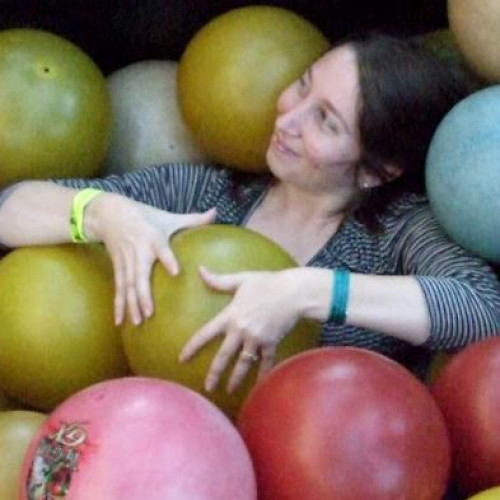
Samantha is a Former Contributor for Windows Central, covering gaming.
